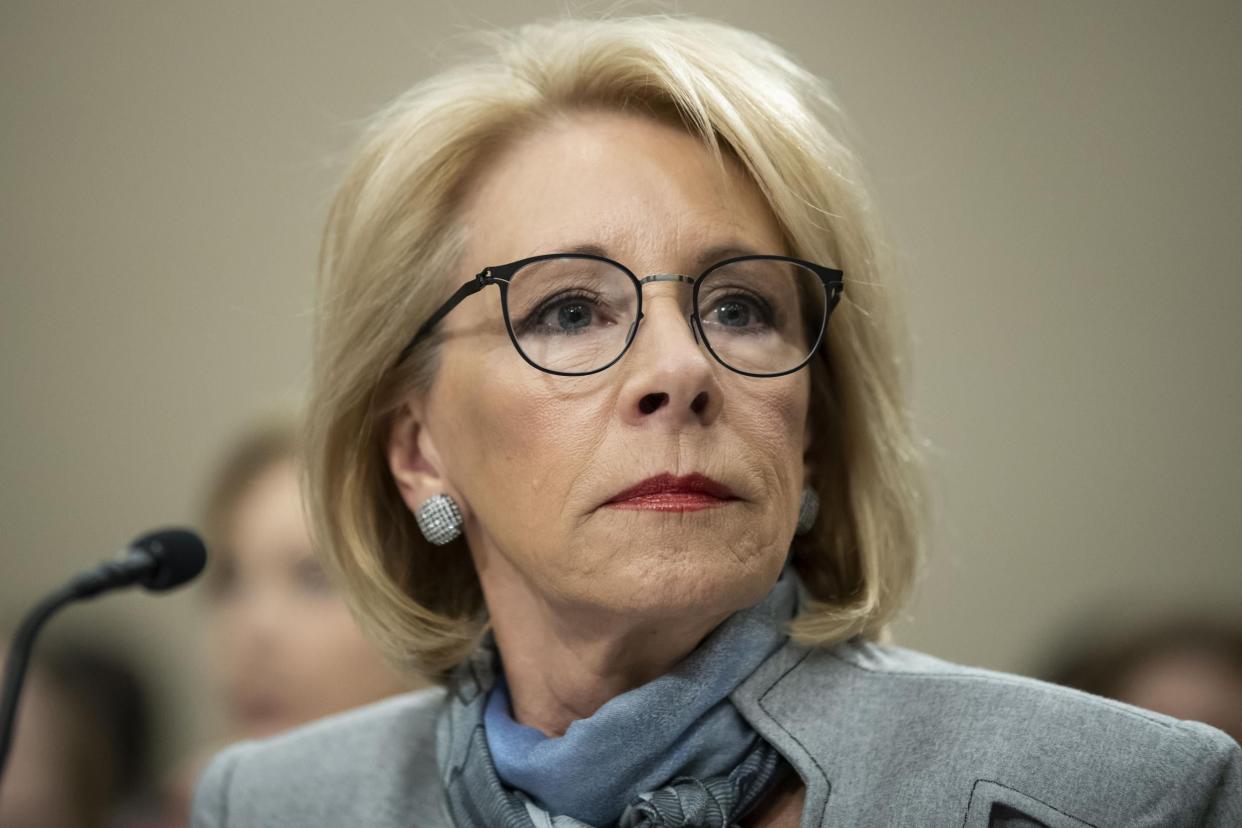Betsy Devos introduces rule making it harder for child abuse victims come forward at school

Education secretary Betsy DeVos has introduced a new rule that could make it harder for child abuse victims to come forward at school.
The Trump admin introduced changes to Title IX to be rolled out this month about how sexual assault and harassment chargers are handled at K-12 schools and on college campuses.
Alterations to Title IX still state the survivor will be taken seriously, according to Ms DeVos, but that the accused cannot be presumed guilty.
"Our proposed rule recognises that we can continue to combat sexual misconduct without abandoning due process," she said about the change.
When President Barack Obama was in office, his administration laid out guidelines for schools that would help them handle complaints of sexual assault and violence. But Ms DeVos claims these guidelines were unfair to all the parties involved.
Backlash about the changes to Title IX has resonated across the public, specifically for the impact it will have on college campuses.
But people are also concerned about what this could mean for children in elementary, middle, or high school when they want to report abuse. Their reasoning is the new mandate will go largely unfunded, with the government anticipating it will save $360m over the next 10 years, so it could create a loss in resources within the schools.
"Schools are not all prepared to handle these incidents as they occur right now," Joel Levin, a co-founder of the nonprofit Stop Sexual Assault In Schools organisation, told Politico.
"The new regulations will just create a more chaotic environment," he said. "The Department of Education has tried to bring some college or higher education-level Title IX rules into K-12, where they don't really work."
Under the new rules it allows, but does not require, for K-12 schools to hold hearings where the victim's advocates or representatives can question the perpetrator.
The rule also requires the victim to write a formal, signed statement to be given to a selected group of staff at the school when reporting assault or sexual harassment.
Critics are worried this would encourage students to avoid reporting abuse at their schools, specifically if it occurs from a teacher or staff member in the building.
"To me, the most damaging things that they're doing are just making it harder for students to report sexual harassment," Levin told the publication. "There's already barriers for K-12 students. A lot of students don't report because they don't think the school is going to do anything about it, or they'll be blamed, or (the school) won't discipline the perpetrator."
Another change Ms DeVos made to Title IX alters how sexual assault and harassment is defined in the law to provide protection for the victim. Currently, the rule states its "unwelcome conduct of a sexual nature".
Ms DeVos is now advocating for the phrasing to state a need for quid pro quo services between the perpetrator and the victim that are "so severe, pervasive and objectively offensive that it effectively deprives a person of equal access to educational programmes or activities." If this change is made, it would discount sexual misconduct and allow for sexual acts to happen that do not drive the victim out of their school or off campus.
Critics say Ms DeVos is not reforming the laws; she is instead rolling back the strides made by organisations to help victims report and handle abuse on a federal level.
Read more
Ben Carson says conditions at the border are 'quite nice'
Coronavirus: 5 more states report cases, as Trump says virus 'stopped'
OJ Simpson ridiculed after stockpiling toilet paper and water
Stock markets tumble as coronavirus continues to take its toll

